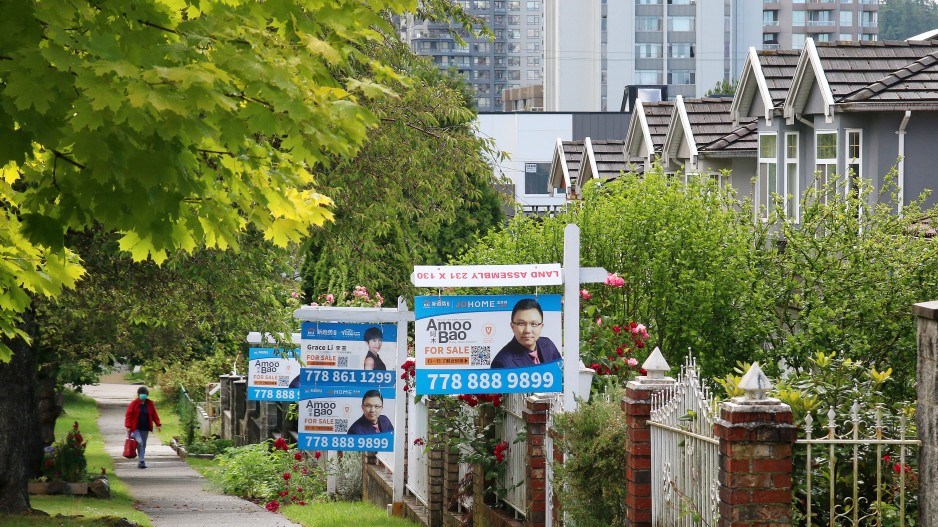The BC Real Estate Association has published a white paper – containing 34 recommendations for the provincial government – aimed at addressing the rising lack of affordability of the local housing market.
BCREA CEO Darlene Hyde in a news conference said the group started compiling the recommendations last November – after the provincial government said it is looking to apply a “cooling-off” period to the housing market.
Such a move, Hyde said, is “prescriptive legislation” without consultation of real estate industry voice. She added such moves may push real estate prices higher or force sellers to go to private markets for selling homes – neither of which would help B.C.’s housing affordability.
“Consultation [with industry] with the results already determined is not a consultation at all,” Hyde said.
Under the provincial model that’s being explored, home buyers who put in a bid on either a resale or a newly built property can back out of their bids within a certain number of days of making the bid – with little consequence.
An existing law allows for a seven-day cooling off period for pre-construction condo sales.
Such a move, however, wouldn’t work for resale homes, BCREA officials said – because pre-sale and resale markets are fundamentally different.
According to Hyde, pre-sale condos are usually directly between a developer and a consumer, with little realtor representation. As such, there is a lack of a level playing field between the companies selling the homes and the individuals buying them – and the developer is usually under no time pressure to sell.
As such, a cooling off period there is completely fair, Hyde said, because it gives back some leverage to the consumer.
In resale, none of that applies – and a cooling off period would encourage “frivolous bids” that would drive up home prices even further while favouring “experienced home buyers with deep pockets” to make bids on multiple properties, thus removing inventory from the housing market further while driving up prices, BCREA officials said.
“I think that’s a legitimate concern,” said BCREA chair Taylor Biggar. “This sort of cooling off period hasn’t been reflected as an effective way to deal with these issues in any other jurisdiction, so why would it work here?”
The BCREA estimates that a 10% increase in bids would introduce a 2-3% rise in the price of a property – something, Hyde said, that is untenable given the already sky-high housing prices in B.C., especially in Metro Vancouver.
Among the recommendations is a mandatory “pre-offer period” of at least five business days from when a property is first listed. The move would, BCREA said, give buyers a chance to look at the property more closely before making an offer – thereby reducing the number of panic bids that are made from people desperate to find a home.
Other recommendations include calls for a more transparent multiple-bid offer scenario that is determined with proper consultation of the real estate sector, as well as raising the entry qualification standards for new real estate agents “to ensure consumers are supported by a profession that is evolving along with the changing market.”
One item not addressed in the BCREA’s recommendations, however, is any sort of measures to counter the effects of overseas buyers – something that has sparked heated debates on whether such buyers play a key role in driving up prices.
SFU Beedie School of Business finance professor Andrey Pavlov, who spoke at the BCREA press conference, said - while he understands why investors are blamed – the impact on housing stock of such investors who then rent out their properties is minimal.
“If an investor buys a property buys a property and then rents it, there is no loss in supply,” Pavlov said. “The property may shift between the rental and the owner-occupied market, but there is no loss in supply... We cannot really blame it for the unaffordability issue today because we really have shortages in both the owner occupied and the rental market.”
Hyde added that foreign purchases have essentially stopped during the pandemic, and the vast majority of what’s driving the current spike in B.C. housing prices is domestic buyers.
“We have a domestic demand we cannot meet,” she said. “This is coming from our own country, primarily... We have to look at not just the transaction process, but [the issue] in a holistic way. That [transaction facet] is the tip of the iceberg.
The full white paper can be read at www.bcrea.bc.ca/supporting-consumers.




